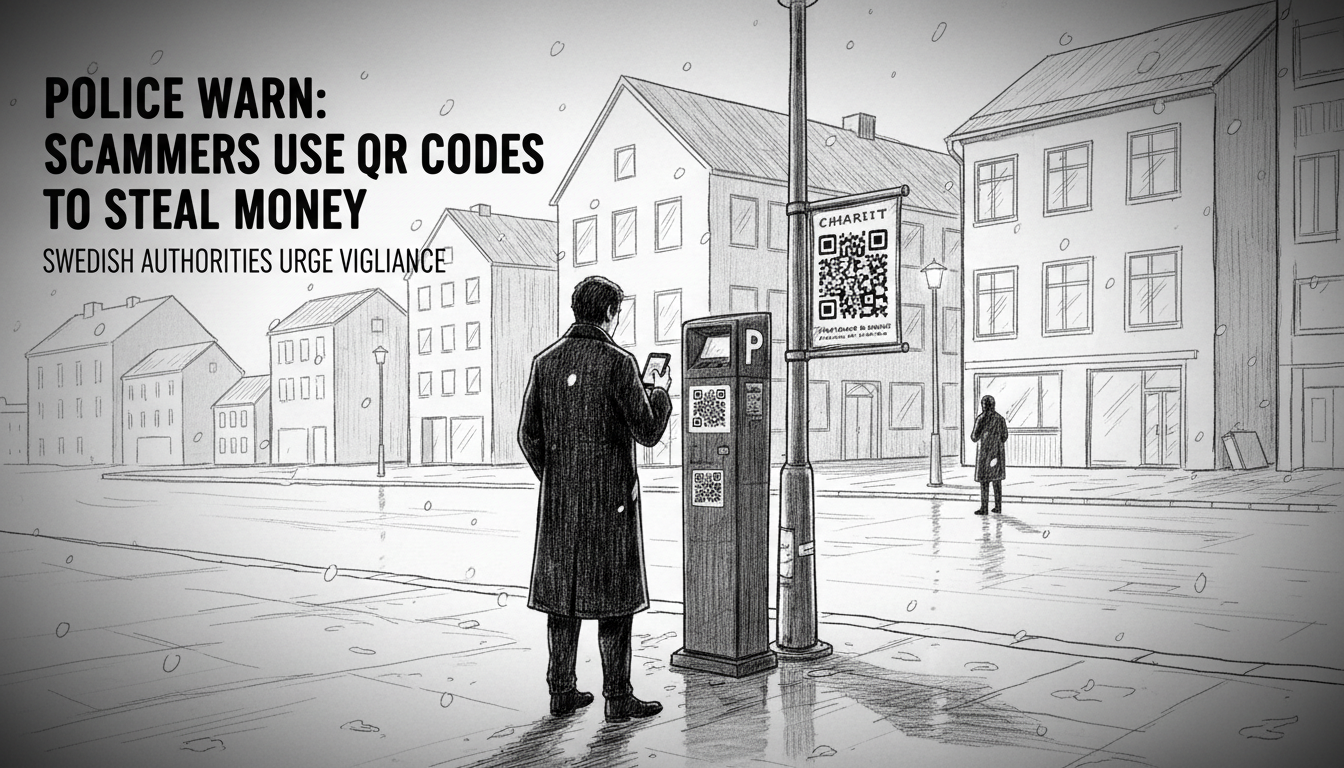Swedish police authorities are sounding the alarm about a new digital scam sweeping across the country. Criminals have begun weaponizing QR codes to defraud unsuspecting victims in what experts call quishing attacks.
Jan Olsson, a police commissioner at the National IT Crime Center, confirmed the troubling trend. He said criminals constantly adopt new methods to steal money from people. QR codes represent their latest tool for deception.
Quishing works through simple deception. Scammers create fake QR codes that redirect users to criminal websites instead of legitimate services. People scan these codes thinking they will access genuine parking payment systems or charity donation portals. Instead, they land on fraudulent sites designed to steal their financial information.
Police have observed these fake QR codes appearing across Swedish cities. They often appear as stickers placed over legitimate codes on parking meters. Other instances involve fake charity donation posters featuring fraudulent QR codes. The scammers target locations where people expect to make quick digital payments.
This development reflects a broader pattern in Nordic digital crime. As Sweden and neighboring countries embrace cashless payments, criminals adapt their methods accordingly. The Nordic region leads Europe in digital payment adoption, making it an attractive target for tech-savvy fraudsters.
Swedish authorities note that quishing represents just one facet of growing digital fraud. Police recorded over 18,000 digital fraud cases in Sweden during the past year. Financial crimes increasingly migrate online as physical security measures improve.
The National IT Crime Center recommends several protective measures. Always verify QR codes come from trusted sources before scanning. Check if stickers appear placed over existing codes. Use official apps for parking and payments rather than scanning random codes. Contact businesses directly if any QR code seems suspicious.
This warning comes as Sweden continues its transition toward becoming a cashless society. Over 80% of transactions now occur digitally. This creates both convenience and new vulnerabilities that criminals exploit.
Police urge anyone who encounters suspicious QR codes to report them immediately. They also advise checking bank statements regularly for unauthorized transactions. Quick reporting increases the chances of recovering stolen funds and identifying criminal patterns.
Digital security experts note that quishing attacks require minimal technical skill to execute. The low barrier to entry makes this scam particularly dangerous. Anyone can generate QR codes through free online tools and print fraudulent stickers.
Swedish consumer protection agencies plan to launch public awareness campaigns about quishing risks. They aim to educate vulnerable groups including elderly citizens and new technology users. These populations often lack the digital literacy to identify sophisticated scams.
International police cooperation will likely increase to combat cross-border quishing operations. Swedish authorities already collaborate with Nordic counterparts on digital crime prevention. They share intelligence about emerging fraud techniques and coordinate public warnings.
The situation demonstrates how technological progress creates new security challenges. As QR codes become embedded in daily life, consumers must remain vigilant about their use. What begins as a convenience tool can quickly become a security threat in the wrong hands.

